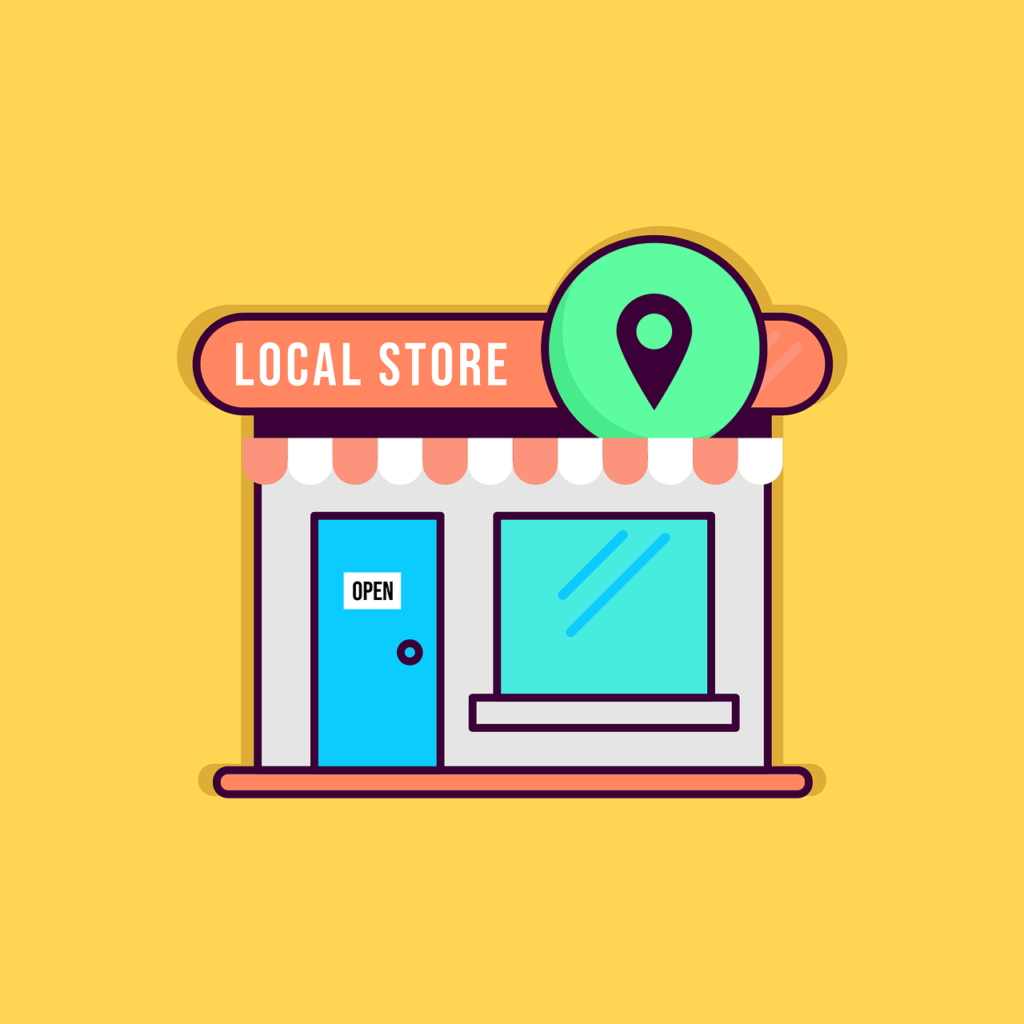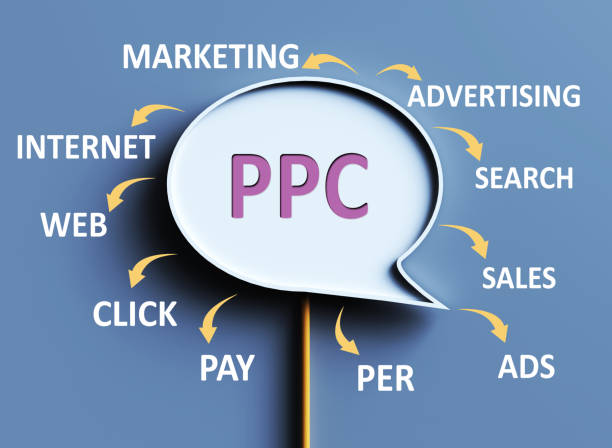Are you looking to boost your business by appearing at the top of local search results? Local SEO is your key to connecting with nearby customers and growing your brand’s presence. In this guide, we will cover the essential strategies that can help your business thrive in your community. Let us dive into the steps you can take to dominate Local SEO today.
What is Local SEO?
Local SEO focuses on improving your online visibility in specific geographic areas. When someone searches for services or products “near me,” Local SEO ensures your business appears in those results. It is not just about being on Google; it is about attracting the right audience in your neighborhood.
For instance, if you run a bakery in Houston, Local SEO helps people nearby find your bakery quickly when they search for “fresh bread near me” or “best bakeries in Houston.”
Why is Local SEO Important for Small Businesses?
Small businesses thrive on local customers. With more people relying on online searches to make purchasing decisions, being visible locally is crucial. Here are a few reasons why Local SEO matters:
-
Higher Visibility: You get noticed by people searching for nearby services.
-
Increased Foot Traffic: Online visibility often translates to more visits to your store.
-
Better Customer Engagement: Locally targeted strategies create stronger community connections.
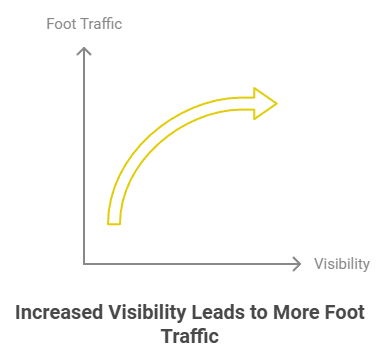
If you are not investing in Local SEO, you could miss out on customers ready to buy from businesses like yours.
How Do Search Engines Rank Local Businesses?
Search engines like Google use several factors to rank local businesses. Understanding these can help you improve your position:
-
Relevance: Does your business match what people are searching for?
-
Distance: How close is your business to the searcher’s location?
-
Prominence: Are you well-known or highly rated in your area?
These factors depend on your website’s content, customer reviews, and local listings accuracy.
Building Your Google My Business Profile
One of the most important tools for Local SEO is your Google My Business (GMB) profile. It is the first thing people see when searching for local businesses. Here is how to create and optimize your profile:
-
Claim Your Listing: If you have not already, claim your GMB profile.
-
Provide Accurate Details: Fill out all information, including business name, address, phone number, and operating hours.
-
Use Keywords Wisely: Add your focus keyphrase, such as “Local SEO,” in your business description.
-
Add Photos: Show what your business offers with high-quality images.
-
Keep It Updated: Make sure any changes in your business details are reflected immediately.
Encourage and Manage Customer Reviews
Online reviews can make or break your local reputation. Positive reviews build trust and improve your rankings. Follow these steps to manage reviews effectively:
-
Ask for Reviews: Politely request reviews from happy customers.
-
Respond to Feedback: Thank reviewers for their positive comments and address negative feedback professionally.
-
Showcase Good Reviews: Share testimonials on your website and social media.
Reviews signal to search engines that your business is trusted and reliable.
Local Keywords: How to Find and Use Them
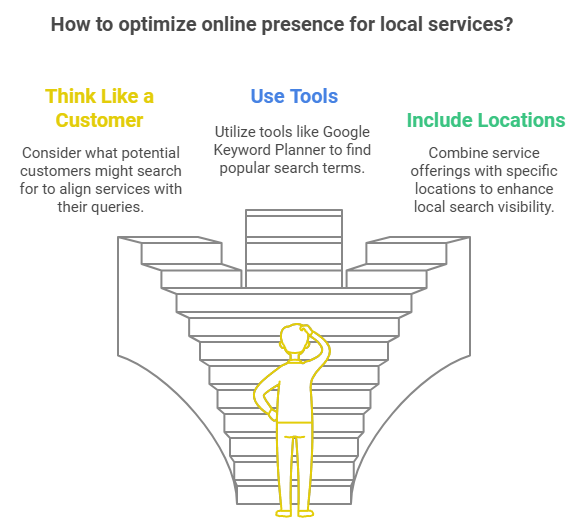
Keywords are the backbone of Local SEO. They tell search engines what your website is about. Here is how you can choose the right local keywords:
-
Think Like a Customer: What would someone type when looking for your services?
-
Use Tools: Platforms like Google Keyword Planner can help identify popular local search terms.
-
Include Locations: Combine your service with your location, like “plumber in Dallas” or “Dallas plumbing services.”
Once you have your keywords, add them to your:
-
Website headings and subheadings
-
Page titles and meta descriptions
-
Blog posts and content pages
The Role of Local Citations in SEO
Local citations are mentions of your business on other websites. They often include your business name, address, and phone number. Popular citation sites include Yelp, TripAdvisor, and Yellow Pages.
Why are citations important?
-
They improve your credibility.
-
They help search engines verify your business information.
To make the most of citations, ensure consistency across all platforms. Even small differences, like “St.” versus “Street,” can confuse search engines.
Creating Locally Focused Content
Writing content tailored to your community is a smart Local SEO strategy. This could include:
-
Blogs: Write about local events, trends, or issues related to your business.
-
Guides: Share tips, such as “Best Places to Shop in [Your City].”
-
Customer Stories: Highlight how your services have helped local customers.
This kind of content builds trust and keeps visitors coming back to your website.
Mobile Optimization for Local Searches
Most local searches happen on mobile devices. If your website is not mobile-friendly, you might lose customers. Here is how to optimize for mobile users:
-
Use Responsive Design: Your site should adjust to fit any screen size.
-
Make Navigation Simple: Ensure menus and buttons are easy to use.
-
Improve Load Time: Compress images and use fast hosting services.
A smooth mobile experience can improve customer satisfaction and Local SEO rankings.
Boosting Local SEO with Social Media
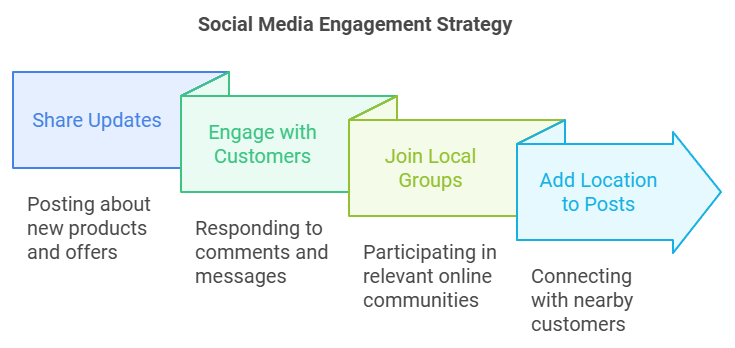
Social media platforms like Facebook and Instagram are powerful tools for reaching local audiences. Use them to:
-
Share Updates: Post about new products, special offers, or upcoming events.
-
Engage with Customers: Reply to comments and messages promptly.
-
Join Local Groups: Participate in online communities relevant to your business.
Adding your location to posts can help you connect with nearby customers.
Tracking Your Local SEO Progress
How can you know if your efforts are paying off? By tracking your progress using tools like:
- Google Analytics: Measure website traffic and see how visitors find you.
- Google Business Profile Insights: Check how many people view and interact with your GBP profile.
-
SEO Software: Tools like Moz or Ahrefs can give you a detailed look at your rankings.
Regularly monitoring your performance helps you identify what works and where to improve.
Common Local SEO Mistakes to Avoid
Avoiding mistakes is just as important as following the right strategies. Here are some common pitfalls:
-
Ignoring Negative Reviews: Address complaints instead of ignoring them.
-
Inconsistent Information: Ensure your business details match everywhere online.
-
Skipping Updates: Keep your website and GBP profile current.
By avoiding these errors, you can maintain a strong online presence.
Local SEO in 2025: Staying Ahead
As search engine algorithms change, staying updated is essential. Here are a few trends to watch:
-
Voice Search: Optimize for voice queries like “Where is the nearest coffee shop?”
-
AI Tools: Many platforms use AI to enhance search results. Stay informed about new developments.
-
Customer-Centric Strategies: Focus on building relationships and meeting customer needs.
Being adaptable will help you continue to dominate Local SEO.
Conclusion
Mastering Local SEO is about being seen and trusted by the right people at the right time. By following these strategies, you can improve your local rankings, attract more customers, and grow your business within your community.
FAQs
1. How long does it take to see results from Local SEO?
It typically takes 3 to 6 months to notice significant changes, but it depends on your competition and strategies.
2. What is the best way to start with Local SEO?
Begin by optimizing your Google My Business profile and ensuring your website is mobile-friendly.
3. Are reviews really that important for Local SEO?
Yes, they play a key role in building trust and improving search engine rankings.
4. How often should I update my GMB profile?
Update it whenever there are changes to your business, like new hours or services.
5. Can Local SEO help online businesses?
Yes, especially if you serve specific regions or want to build local trust for your brand.


